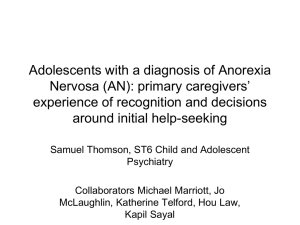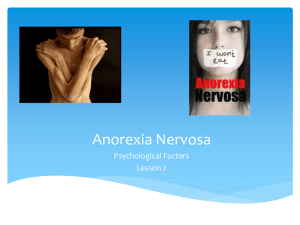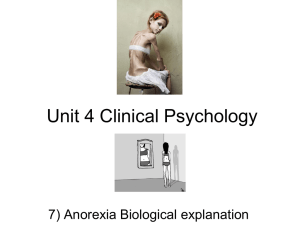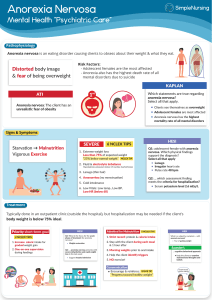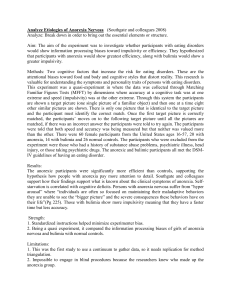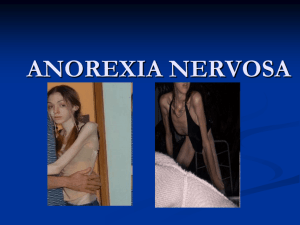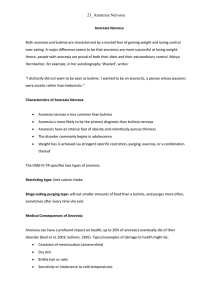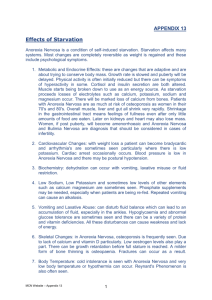Anorexia Nervosa
advertisement
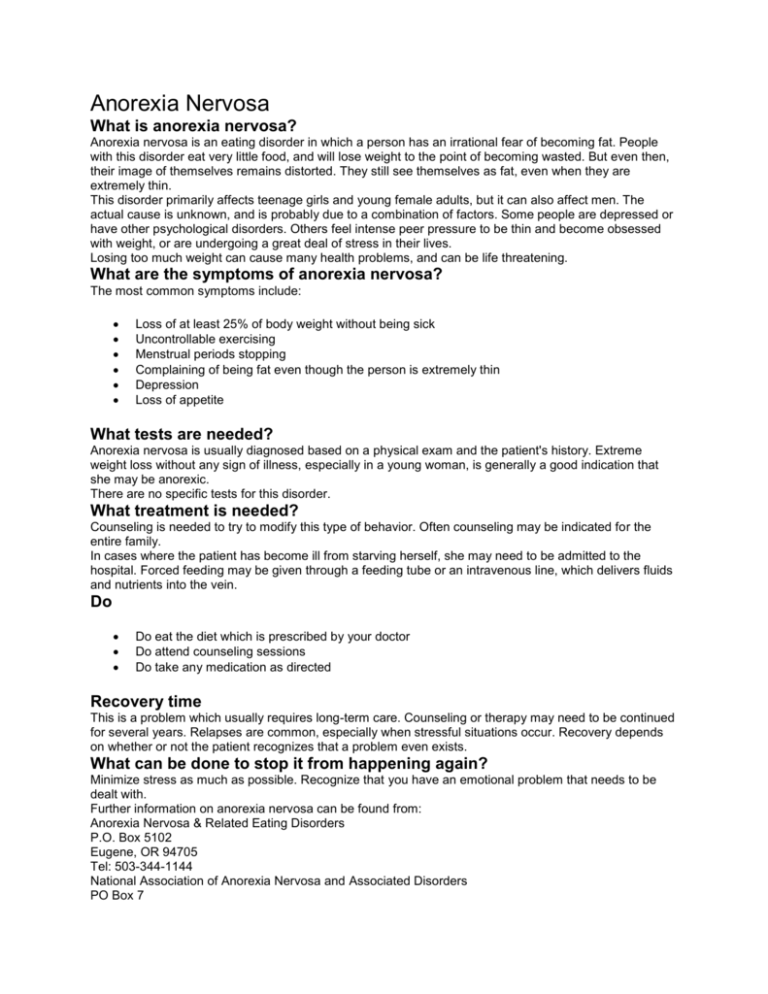
Anorexia Nervosa What is anorexia nervosa? Anorexia nervosa is an eating disorder in which a person has an irrational fear of becoming fat. People with this disorder eat very little food, and will lose weight to the point of becoming wasted. But even then, their image of themselves remains distorted. They still see themselves as fat, even when they are extremely thin. This disorder primarily affects teenage girls and young female adults, but it can also affect men. The actual cause is unknown, and is probably due to a combination of factors. Some people are depressed or have other psychological disorders. Others feel intense peer pressure to be thin and become obsessed with weight, or are undergoing a great deal of stress in their lives. Losing too much weight can cause many health problems, and can be life threatening. What are the symptoms of anorexia nervosa? The most common symptoms include: Loss of at least 25% of body weight without being sick Uncontrollable exercising Menstrual periods stopping Complaining of being fat even though the person is extremely thin Depression Loss of appetite What tests are needed? Anorexia nervosa is usually diagnosed based on a physical exam and the patient's history. Extreme weight loss without any sign of illness, especially in a young woman, is generally a good indication that she may be anorexic. There are no specific tests for this disorder. What treatment is needed? Counseling is needed to try to modify this type of behavior. Often counseling may be indicated for the entire family. In cases where the patient has become ill from starving herself, she may need to be admitted to the hospital. Forced feeding may be given through a feeding tube or an intravenous line, which delivers fluids and nutrients into the vein. Do Do eat the diet which is prescribed by your doctor Do attend counseling sessions Do take any medication as directed Recovery time This is a problem which usually requires long-term care. Counseling or therapy may need to be continued for several years. Relapses are common, especially when stressful situations occur. Recovery depends on whether or not the patient recognizes that a problem even exists. What can be done to stop it from happening again? Minimize stress as much as possible. Recognize that you have an emotional problem that needs to be dealt with. Further information on anorexia nervosa can be found from: Anorexia Nervosa & Related Eating Disorders P.O. Box 5102 Eugene, OR 94705 Tel: 503-344-1144 National Association of Anorexia Nervosa and Associated Disorders PO Box 7 Highland Park IL 60035 Hotline: 847-831-3438 E-mail: info@anad.org www.anad.org Reproduced with permission from PDxMD - Clinical Information for Quality Care - www.pdxmd.com
